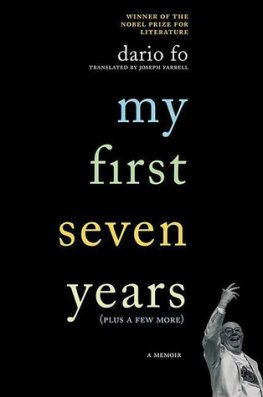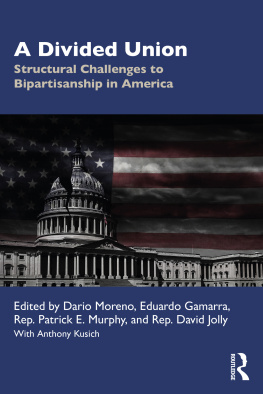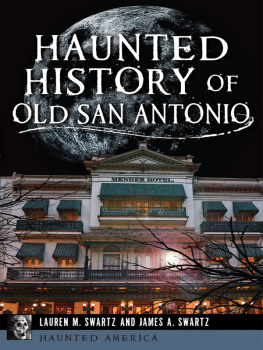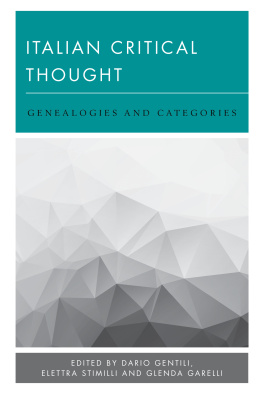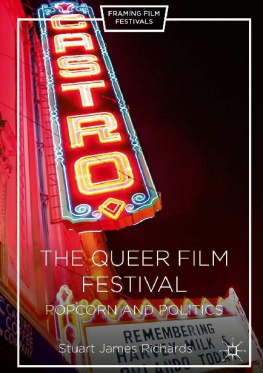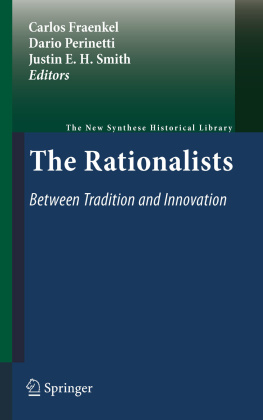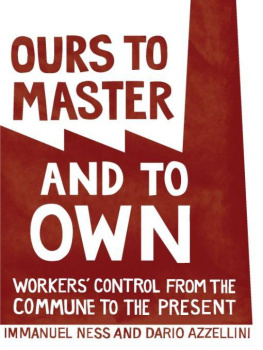Antonio Scuderi - Dario Fo: Framing, Festival, and the Folkloric Imagination.
Here you can read online Antonio Scuderi - Dario Fo: Framing, Festival, and the Folkloric Imagination. full text of the book (entire story) in english for free. Download pdf and epub, get meaning, cover and reviews about this ebook. City: Lanham, year: 2011, publisher: Lexington Books, genre: Romance novel. Description of the work, (preface) as well as reviews are available. Best literature library LitArk.com created for fans of good reading and offers a wide selection of genres:
Romance novel
Science fiction
Adventure
Detective
Science
History
Home and family
Prose
Art
Politics
Computer
Non-fiction
Religion
Business
Children
Humor
Choose a favorite category and find really read worthwhile books. Enjoy immersion in the world of imagination, feel the emotions of the characters or learn something new for yourself, make an fascinating discovery.

- Book:Dario Fo: Framing, Festival, and the Folkloric Imagination.
- Author:
- Publisher:Lexington Books
- Genre:
- Year:2011
- City:Lanham
- Rating:3 / 5
- Favourites:Add to favourites
- Your mark:
- 60
- 1
- 2
- 3
- 4
- 5
Dario Fo: Framing, Festival, and the Folkloric Imagination.: summary, description and annotation
We offer to read an annotation, description, summary or preface (depends on what the author of the book "Dario Fo: Framing, Festival, and the Folkloric Imagination." wrote himself). If you haven't found the necessary information about the book — write in the comments, we will try to find it.
Dario Fo: Framing, Festival, and the Folkloric Imagination. — read online for free the complete book (whole text) full work
Below is the text of the book, divided by pages. System saving the place of the last page read, allows you to conveniently read the book "Dario Fo: Framing, Festival, and the Folkloric Imagination." online for free, without having to search again every time where you left off. Put a bookmark, and you can go to the page where you finished reading at any time.
Font size:
Interval:
Bookmark:
The research and writing that went into this study was greatly facilitated by a sabbatical leave that was granted to me by Truman State University. Friends and colleagues generously helped with proofreading, suggestions, and feedback. These include Gloria Allaire, Joe Benevento, Adam Davis, Joe Farrell, and Helena Kaufman. Two former professors at the University of Wisconsin-Madison offered advice in their specialized fields: Thomas D. Cravens in linguistics and Christopher Kleinhenz in medieval studies and Dante. Special thanks to folklorist Richard Bauman, who was kind enough to read the manuscript, offer sage advice, and suggest the title.
The present study includes, in greatly expanded forms, three previously published articles (Scuderi 2003, 2004, and 2005). Permission to reprint from these was granted by Theatre Journal (The Johns Hopkins University Press), Modern Language Review (Modern Humanities Research Association), and New Theatre Quarterly (Cambridge University Press). Giulio Einaudi editore granted permission to quote extensively from Dario Fos Lu santo julle Franesco . Dario Fo, Franca Rame, Jacopo Fo, and their competent staff were gracious in granting permission to quote from Darios plays and from the interviews he gave me. They also provided me with original artwork by Dario, as well as permission to reproduce them. Thanks also to artist and photographer Brent Orton who enlarged and enhanced the electronic image of Fos sketch for the frontispiece. All translations are by me, unless otherwise indicated.
Abrahams, Roger D. 1984. The Training of the Man of Words in Talking Sweet. In Bauman 1984:117-32.
Alighieri, Dante. 1982. La Divina commedia . Ed. Umberto Bosco and Giovanni Reggio. 3 vols. Florence: Le Monnier.
Arden, Heather. 1980. Fools Plays: A Study of Satire in the Sotie. London: Cambridge UP.
Auerbach, Erich. 2003. Mimesis . Tr. Willard R. Trask. 2nd ed. Princeton: Princeton UP.
Babcock, Barbara. 1984. The Story in the Story: Metanarration in Folk Narrative. In Bauman 1984:61-79.
Bakhtin, Mikhail. 1984. Rabelais and His World . Tr. Hlne Iswolsky. Bloomington: Indiana UP.
Baroja, Julio Caro. 1979. El carnival: anlisis histdrico-cultural . 2nd ed. Madrid: Tauro.
Bateson, Gregory. 1972. Steps to an Ecology of Mind . New York: Ballantine Books.
Bauman, Richard. 1984. Verbal Art as Performance . 2nd ed. Prospect Heights, IL: Waveland Press.
Beacham, Richard C. 1991. The Roman Theatre and Its Audience . Cambridge: Harvard UP.
Behan, Tom. 2000. Dario Fo Revolutionary Theatre . London: Pluto Press.
. 2001. Dario Fo, the Commune, and the Battle for the Palazzina Liberty: Involving Community in the Struggle for a Place to Perform. New Theatre Quarterly . 17.66:99-110.
Berger, Harris M. and Giovanna P. Del Negro, eds. 2002. Toward New Perspectives on Verbal Art as Performance. Special issue. Journal of American Folklore . 115.455.
Bignardelli, Ignazio O. 1962. Una delle tante beffe del Guerrini? LUniverso . 42.1:177-82.
Binni, Lanfranco. 1975. Attento te Il teatro politico di Dario Fo . Verona: Bertani.
Brocchi, Virgilio. 1942. Le beffe di Olindo . Milan: Mondadori.
Burke, James. 1995. The Day the Universe Changed . Boston: Little, Brown.
Cairns, Christopher. 2000. Dario Fo e la pittura scenica: Arte teatro regie 1977-1997 . Naples: Edizioni Scientifiche Italiane.
Cardini, Franco. 1989. Francesco d Assisi . Milan: Mondadori.
Casagrande, Carla and Silvana Vecchio. 1978. Linterdizione del giullare nel vocabolario clericale del XII e del XIII secolo. In Il Contributo dei giullari alla drammaturgia italiana delle origini . Rome: Bulzoni, 207-58.
Chancerel, Lon. 1946. Le theatre etla jeunesse . Paris: Bourrellier.
Cowan, Susan. 1975. The Throw-Away Theatre of Dario Fo. The Drama Review . 19.2:102-13.
Da Cuneo, Michele. 1893. Michele de Cuneo. Lettera (1495). In Raccolta di documenti e studi . Rome: Reale Commissione Colombiana, 95-107.
DArcangeli, Luciana. 2009. I Personaggi femminili nel teatro di Dario Fo e Franca Rome . Florence: Franco Cesati.
Defoe, Daniel. 1975. Robinson Crusoe . New York: Norton.
Doninelli, Luca. 1999. Francesco giullare presunto. LAvvenire , July.
Eco, Umberto Eco. 1983. The Name of the Rose . Tr. William Weaver. New York: Harcourt Brace Jovanovich.
Emery, Ed, ed. 2002. Research Papers on Dario Fo and Franca Rame . Proceedings of the International Conference held in Cambridge in 2000. Sydney: Red Notes.
Fantham, R. Elaine. 1989. Mime: The Missing Link in Roman Literary History. The Classical World . 82.3:153-63.
Farrell, Joseph. 2000a. The Actor Who Writes: Dario Fo and the Nobel Prize. In Farrell and Scuderi 2000:197-211.
. 2000b. Fo and Ruzzante: Debts and Obligations. In Farrell and Scuderi 2000:80-100.
. 2001. Dario Fo and Franca Rame: Harlequins of the Revolution . London: Methuen.
. 2002. History as Tragedy and Farce: Dario Fo and the Moro Case. In Emery 2002 85-102.
Farrell Joseph, and Antonio Scuderi, eds. 2000. Dario Fo: Stage, Text and Tradition . Carbondale: Southern Illinois UP.
Ferguson, Charles A. 1959. Diglossia. Word . 25:325-40.
Fo, Dario. 1966-98. Le commedie di Dario Fo . 12 vols, to date. Turin: Einaudi.
. 1966. Isabella, tre caravelle e un cacciaballe . In Fo 1966-98, vol. 2, 2-86.
. 1974a. Non sipaga! Non si paga! Milan: La Comune.
. 1974b. Culture populaire et travail militant. Interview in Cahiers du cinema . 250:11-25.
. 1975. LOperaio conosce 300 parole il padrone 1000 per questo lui il padrone . In Fo 1966-98, vol. 3, 81-129.
. 1976. Il Fanfani rapito . Verona: Bertani.
. 1977a. Il Teatro di Dario Fo . Televisione RAI. Videocassettes. Includes Mistero buffo and Ci ragiono e canto . C.T.F.R.
. 1977b. Mistero buffo . In Fo 1966-98, vol. 5, 5-171.
. 1978. Here Come the Jesters . TV Documentary. Swedish Television.
. 1980. Storia della tigre e altre storie . Eds. Franca Rame and Arturo Corso. Milan: La Comune.
. 1983. Dario Fo and Franca Rame: Theatre Workshops at Riverside Studios, London . London: Red Notes.
. 1987. Manuale minimo dellattore . Ed Franca Rame. Turin: Einaudi.
. 1988. Morte accidentale di un anarchico . In Fo 1966-98. Vol. 7:5-83.
. 1990. Dialogo Provocatorio sul comico, il tragico, la follia e la ragione . Interviews with Luigi Allegri. Rome: Laterza.
. 1991a. Tot. Manuale dellattor comico . Ed. Liborio Termine. Turin: Aleph.
. 1991b. Dario Fo 1991. Storia della tigre e altre storie . Videocassette. Milan: C.T.F.R.
. 1992a. Fabulazzo . Eds. Lorenzo Ruggiero and Walter Valeri. Milan: Kaos.
. 1992b. Il Papa e la Strega . Ed. Franca Rame. 5th ed. Milan: C.T.F.R.
. 1992c. Johan Padan a la descoverta de le Americhe . Videocassette. Milan: C.T.F.R.
. 1992d. Johan Padan a la descoverta de le Americhe . Original paintings and drawings. Turin: Gruppo Ablele.
. 1992e. Johan Padan a la descoverta de le Americhe . Ed. Franca Rame. Published text. Firenze: Giunti Gruppo Editoriale.
. 1993. Interviews with Antonio Scuderi, October, Milan.
. 1997. Quasi per caso una donna: Elisabetta . In Fo 1966-98. Vol. 11:195-282.
. 1998. Il Diavolo con le zinne . Ed. Franca Rame. Turin: Einaudi.
. 1999a. Lu santo jullre Franesco . Ed. Franca Rame. Turin: Einaudi.
. 1999b. Lu santo jullre Franesco . Videocassette. Turin: Einaudi.
. 2001. Johan Padan and the Discovery of America . Tr. Ron Jenkins. New York: Grove Press.
. 2002. Il Paese del mezart: I Miei primi sette anni (e qualcuno in pi) . Milan: Feltrinelli.
. 2004a. LAnomalo Bicefalo. MicroMega (supplement). N.2, April-May. Rome: Gruppo Editoriale LEspresso .
. 2004b. LAnomalo Bicefalo . Videocassette (Planet and Atlantide TV). LUnit (supplement). Rome: Nuova Iniziativa Editoriale.
Font size:
Interval:
Bookmark:
Similar books «Dario Fo: Framing, Festival, and the Folkloric Imagination.»
Look at similar books to Dario Fo: Framing, Festival, and the Folkloric Imagination.. We have selected literature similar in name and meaning in the hope of providing readers with more options to find new, interesting, not yet read works.
Discussion, reviews of the book Dario Fo: Framing, Festival, and the Folkloric Imagination. and just readers' own opinions. Leave your comments, write what you think about the work, its meaning or the main characters. Specify what exactly you liked and what you didn't like, and why you think so.

